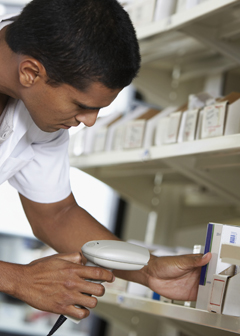Summary

| Quick Facts: Pharmacy Technicians | |
|---|---|
|
$28,400 per year
$13.65 per hour |
|
| High school diploma or equivalent | |
| None | |
| Moderate-term on-the-job training | |
| 334,400 | |
| 32% (Much faster than average) | |
| 108,300 | |
What Pharmacy Technicians Do
Pharmacy technicians help licensed pharmacists dispense prescription medication.
Work Environment
Pharmacy technicians work in pharmacies, including those found in grocery and drug stores, and in hospitals. Most work full time, but many work part time.
How to Become a Pharmacy Technician
Becoming a pharmacy technician usually requires earning a high school diploma. Some states also require completing a formal training program and passing an exam.
Pay
The median annual wage of pharmacy technicians was $28,400 in May 2010.
Job Outlook
Employment of pharmacy technicians is expected to increase by 32 percent from 2010 to 2020, much faster than the average for all occupations.
Similar Occupations
Compare the job duties, education, job growth, and pay of pharmacy technicians with similar occupations.
O*NET
O*NET provides comprehensive information on key characteristics of workers and occupations.
Contacts for More Information
Learn more about pharmacy technicians by contacting these additional resources.








